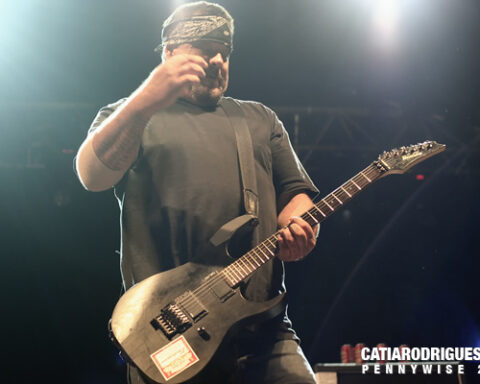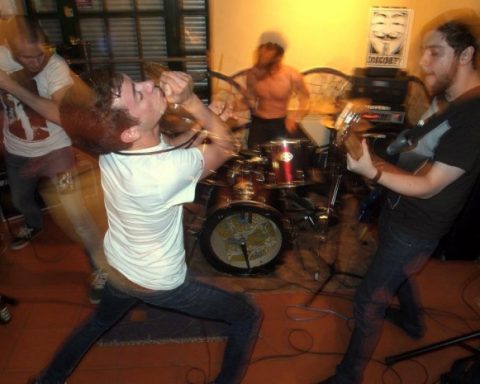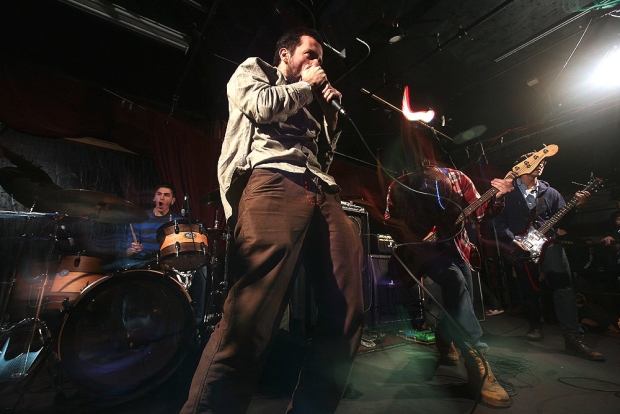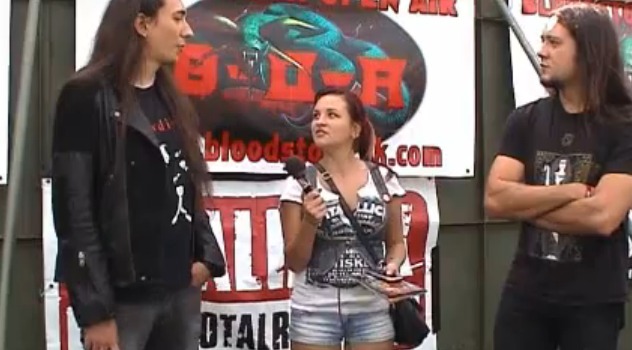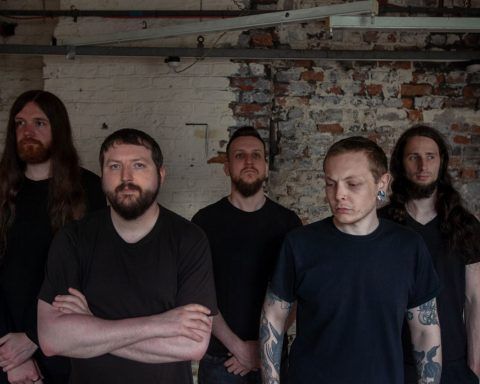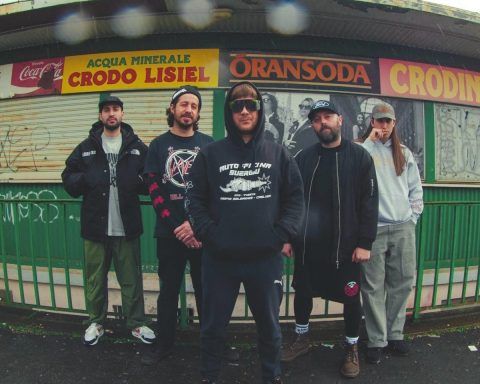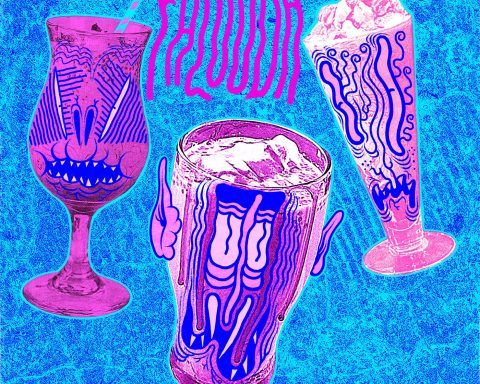Wormwood Chronicles recently conducted an interview with Tristan Shone of AUTHOR & PUNISHER.
I’m curious about the name of your latest album, “Ursus Americanus”. That translates to “American Bear”. What’s the reasoning behind that name?
Well, it’s kind of a personal thing. I didn’t want to base the name of the album on the machines this time, even though I do draw a lot of influence from hi-tech. I think of the music as being aggressive and dark, but a little more on the…not gentle per se, but I do think of the black bear as being evil looking but having a gentle demeanor. I kind of compare myself to that. The music is real heavy but I’m a pretty calm individual and I wanted the title to kind of reflect that.
This gets to the heart of the whole Author & Punisher concept. What is your relationship with machinery? Do you feel like its master or its slave?
I feel like I’m the master. I’ve worked with machinery and designed instruments for industrial automation and robotics for 12 years. I guess it’s more of a partnership. I don’t feel it’s a master-slave relationship at all. I’m not turning things on that do other things and my machines aren’t overpowering me in any way. I’m basically making objects and devices that feel like the music to me…I can feel the resistance and the interference between the materials and that represents the doom and heaviness to me.
Do you get more physical satisfaction out of using muscle power that way to create music?
Yeah, I would say there is something more satisfying than using the classical kinds of instruments that break easily. If you turn a knob too hard, it breaks. Your body wants to exert a certain amount of force and if it’s held back in any way, the sound may also be held back. There’s a lot of restraint in using classical instruments. You feel bottled up and you feel like if you make a mistake, it’s like killing or strangling somebody.
A lot of industrial music sounds like evil disco. What you create seems to fit the description of industrial music a lot more, do you agree?
I do. I tell people that I think my music is more organic than the usual industrial or electronic music because I am controlling everything. Of course, on the albums, I do mess around in production and if I played something wrong, I slip in a MIDI fix. When I’m playing live, though, I don’t sequence anything. There’s no drumbeat loops. There’s a natural fluctuation, there’s mistakes…there’s more of a spastic, spontaneous bodily feel. I agree with your statement. I think industrial music often tends to be just like house music through a distortion pedal.
Who are some of the influences you had in creating this music?
Back in 8th or 9th grade, I think it was like Sepultura, then Godflesh and the Melvins. I’ve still been with those bands, In college I started going to raves. I started to feel that electronic music had better sound quality. A lot of metal music these days is like a high and mid range onslaught. It’s supposed to have balls and it’s totally missing it because there’s no low end. That’s what drum and bass, dub, dubstep and the real reggae has. There’s newer acts like Deadbeat and Pole, Rhythm and Sound, Flying Lotus that I think are very heavy. They’re just not doom bands.
“Ursus Americanus” is actually a very diverse album. How important was it to you to have a wide range of sounds on this album?
II was tough, because I could have took some of those softer songs and grouped them with others I’ve messed around with on a totally soft album. But I’m just under the impression that you only have time to do one band. I DJ and do a ton of electronic shows. So I just basically put a couple of those tracks that I play on the machines on the record. I don’t think it was that important, it’s just that’s how my shows are. I thought about taking those songs off there at one point…
In my opinion, those songs helped to make the album. If the whole album had been like the song “Set Flame”, it would be almost unlistenable.
Yeah, that’s right.
The rest of the interview can be read here.





